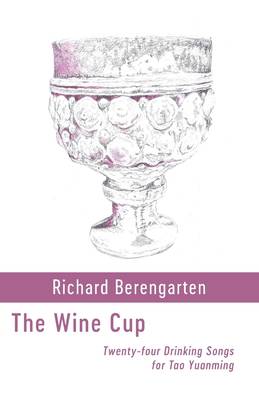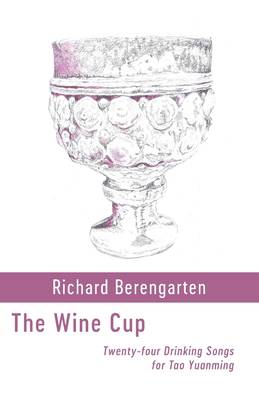
- Retrait gratuit dans votre magasin Club
- 7.000.000 titres dans notre catalogue
- Payer en toute sécurité
- Toujours un magasin près de chez vous
- Retrait gratuit dans votre magasin Club
- 7.000.0000 titres dans notre catalogue
- Payer en toute sécurité
- Toujours un magasin près de chez vous
Description
Sonnet-sequences have a history of nearly 1,000 years. But a sequence of villanelles? Here, perhaps for the first time ever in English, is a suite of twenty-four of them. The delicate instrument of the villanelle is played, lightly and gently, to salute Tao Yuanming, Chinese poet, Daoist, recluse, and a great Lord of Wine, who lived more than 1,500 years ago.
"In these beautiful, lucid poems, Richard Berengarten exploits the scope of the villanelle in a profound engagement with nature and mortality, in which past, present and future voices resonate across East and West. Accompanied by 'old friends', he fills the wine jug and considers existential realities of love and loss, imagination and creativity, where his thought and form are testimony to a life-long intimacy with Daoism and the I Ching." -Lucy Hamilton
"Poetry inspired by wine is almost a genre in Chinese literature. The Chinese pastoral poet Tao Yuanming (365?-427) pioneers what may be called 'alcoholyricism'. Berengarten's drinking songs are not just a fitting tribute to and admirable emulation of Tao Yuanming's poetic theme and art, but their evocation of idyllic rural scenes and deep reflections on humanity's relation to nature entitles him to be called a Tao Yuanming in English garb." -Ming Dong Gu
"There is an elegiac if not valedictory tone abroad and at home in these beautiful poems. We are in the aural territory of an ageing song-bird - the most musical of our older poets - gathering his forces to sing, like Shakespeare's lark, at heaven's gate. He is our host and guest, as we age along with him." -Anthony Rudolf
"In these beautiful, lucid poems, Richard Berengarten exploits the scope of the villanelle in a profound engagement with nature and mortality, in which past, present and future voices resonate across East and West. Accompanied by 'old friends', he fills the wine jug and considers existential realities of love and loss, imagination and creativity, where his thought and form are testimony to a life-long intimacy with Daoism and the I Ching." -Lucy Hamilton
"Poetry inspired by wine is almost a genre in Chinese literature. The Chinese pastoral poet Tao Yuanming (365?-427) pioneers what may be called 'alcoholyricism'. Berengarten's drinking songs are not just a fitting tribute to and admirable emulation of Tao Yuanming's poetic theme and art, but their evocation of idyllic rural scenes and deep reflections on humanity's relation to nature entitles him to be called a Tao Yuanming in English garb." -Ming Dong Gu
"There is an elegiac if not valedictory tone abroad and at home in these beautiful poems. We are in the aural territory of an ageing song-bird - the most musical of our older poets - gathering his forces to sing, like Shakespeare's lark, at heaven's gate. He is our host and guest, as we age along with him." -Anthony Rudolf
Spécifications
Parties prenantes
- Auteur(s) :
- Editeur:
Contenu
- Nombre de pages :
- 36
- Langue:
- Anglais
Caractéristiques
- EAN:
- 9781848618503
- Date de parution :
- 23-09-22
- Format:
- Livre broché
- Format numérique:
- Trade paperback (VS)
- Dimensions :
- 140 mm x 216 mm
- Poids :
- 58 g

Les avis
Nous publions uniquement les avis qui respectent les conditions requises. Consultez nos conditions pour les avis.






